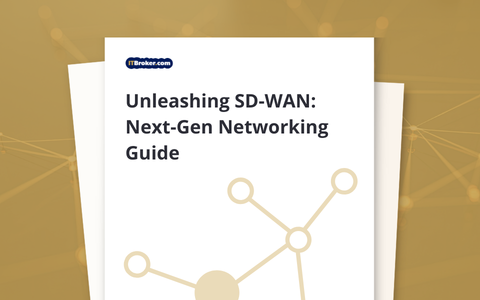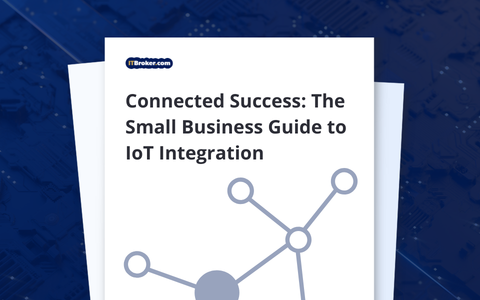What Is Business Internet Access?
Business internet access refers to connectivity solutions designed to meet the higher demands of organizations compared to consumer services. Unlike home internet, business-grade solutions offer:
- Guaranteed Service Levels (SLAs)
- Symmetrical Upload and Download Speeds
- 24/7 Technical Support
- Greater Scalability
- Advanced Security Features
Types of Business Internet Access
- Dedicated Internet Access (DIA)
Symmetrical, high-speed connections reserved exclusively for your organization—ideal for mission-critical apps. - Broadband Internet
Shared but cost-effective connectivity suitable for standard business functions. - Fiber Connectivity
Ultra-fast, low-latency service with unmatched scalability. - Wireless & LTE Access
Flexible, portable connectivity for backup, remote sites, or temporary deployments. - Satellite Internet
Essential for rural or underserved locations where traditional connections aren’t available.
Why Businesses Need High Speed Internet Now
We often hear IT leaders describe frustration with inconsistent speeds, downtime, and insufficient bandwidth for growing digital demands. Common challenges include:
- Cloud Dependency
From Microsoft 365 to CRM platforms, more business tools now rely on uninterrupted internet. - Remote and Hybrid Work
Teams need reliable access to cloud apps and collaboration tools from any location. - Video Conferencing and Collaboration
High-bandwidth platforms like Zoom, Teams, and Slack are now everyday essentials. - Cybersecurity Concerns
Shared consumer-grade internet exposes businesses to greater risks. - Scalability Needs
Growing businesses require flexible bandwidth that adapts as usage spikes.
High speed internet for business addresses all these issues—ensuring performance, resilience, and growth-readiness.
Key Benefits of High Speed Internet for Business
1. Enhanced Productivity
Faster speeds mean smoother collaboration, quicker file sharing, and reduced downtime.
2. Seamless Cloud Access
Ensure reliable performance for SaaS platforms, data storage, and business applications.
3. Improved Communication
Support HD video conferencing and VoIP without jitter or call drops.
4. Future-Ready Scalability
Add bandwidth or locations as your business grows without costly overhauls.
5. Stronger Security
Business-grade connections often include advanced firewalls, monitoring, and threat prevention.
How Business Internet Access Works
At a high level, here’s how modern business internet ensures speed and reliability:
- Dedicated Bandwidth Allocation
With options like DIA and fiber, bandwidth is reserved exclusively for your business. - Low-Latency Routing
Optimized routing reduces delays for cloud applications and real-time communication. - Redundant Connectivity Options
Failover systems ensure operations continue even if the primary line fails. - Scalable Architecture
Bandwidth and coverage expand as demand increases—without the need for full redesigns. - 24/7 Support and Monitoring
Dedicated technical support and monitoring minimize downtime and risk.
Business Internet vs Consumer Internet
Common Misconceptions About Business Internet
- “Residential internet is good enough.”
Business operations require guaranteed uptime and symmetrical speeds that consumer plans don’t provide. - “High speed internet is too expensive.”
The cost of downtime or poor performance far outweighs the investment in reliable service. - “We don’t need a dedicated connection.”
Shared connections can quickly bottleneck with high usage, especially during peak hours. - “Switching providers is disruptive.”
With expert planning, migration can be seamless and downtime minimized.
Who Should Consider High Speed Business Internet?
Based on our experience, high speed internet is critical for:
- SMBs adopting cloud-based productivity tools
- Enterprises with multiple global or regional sites
- Healthcare organizations needing HIPAA-compliant connectivity
- Financial firms requiring secure, low-latency transactions
- Retailers relying on POS and digital customer experiences
Implementation Insights
A successful internet upgrade starts with a clear roadmap:
- Bandwidth Assessment
Identify current usage and forecast future demand. - Solution Mapping
Match connectivity type (DIA, fiber, LTE, etc.) with your business requirements. - Vendor Selection
Evaluate providers based on performance, SLAs, and scalability. - Deployment Planning
Implement with minimal disruption to operations. - Ongoing Optimization
Regular monitoring and cost reviews to ensure value and performance.
Pricing Models for Business Internet
Business internet pricing typically depends on bandwidth, service type, and coverage. Common models include:
- Flat-Rate Plans
Predictable monthly pricing for DIA or fiber. - Tiered Bandwidth Packages
Options for businesses scaling gradually. - Pay-As-You-Grow
Flexible models for companies with fluctuating demand. - Custom Enterprise Contracts
Tailored SLAs and coverage for multi-site or global operations.
FAQs About High Speed Internet for Business
How is business internet different from home internet?
Business internet offers SLAs, symmetrical speeds, and 24/7 support.
What’s the most reliable option?
Dedicated Internet Access (DIA) and fiber connections provide the highest reliability.
Can I use LTE or wireless as my primary internet?
It’s best as backup or for temporary sites, not as a main connection.
How fast should my business internet be?
It depends on your workforce size, cloud adoption, and application use. We help you assess accurately.
Does high speed internet improve security?
Yes. Business-grade plans include stronger security and monitoring features.







.png)
.png)
.png)
_%20Redefining%20Security.png)







